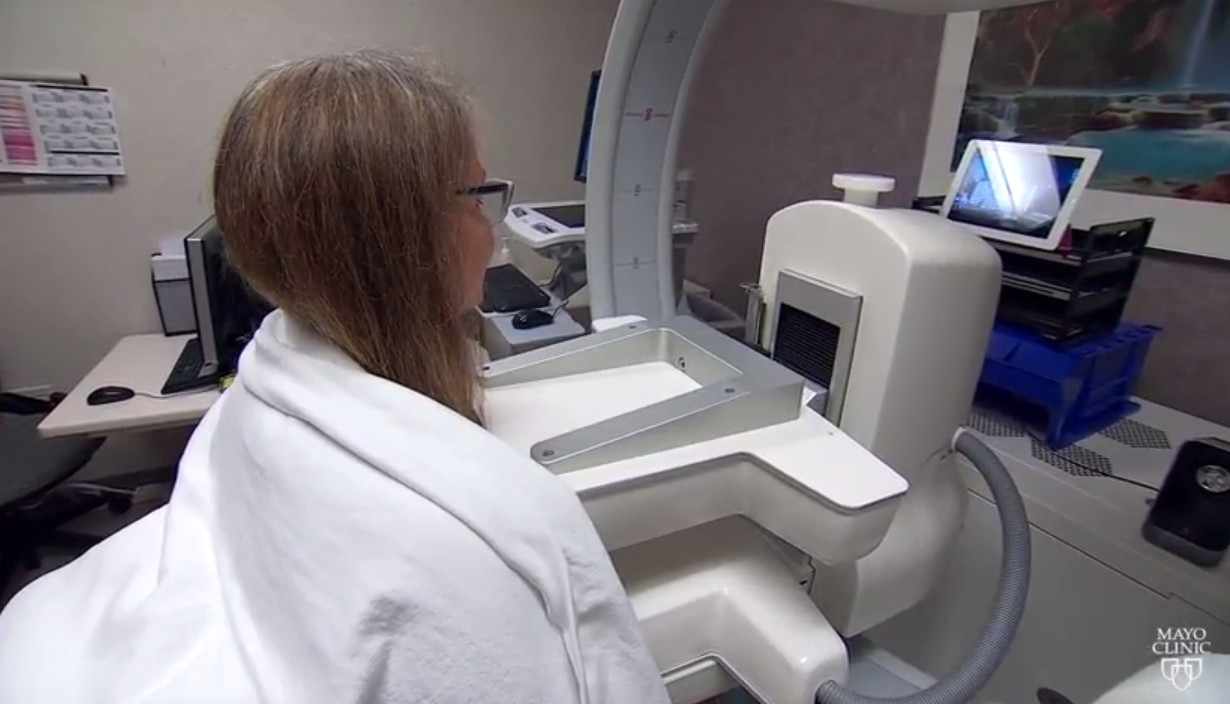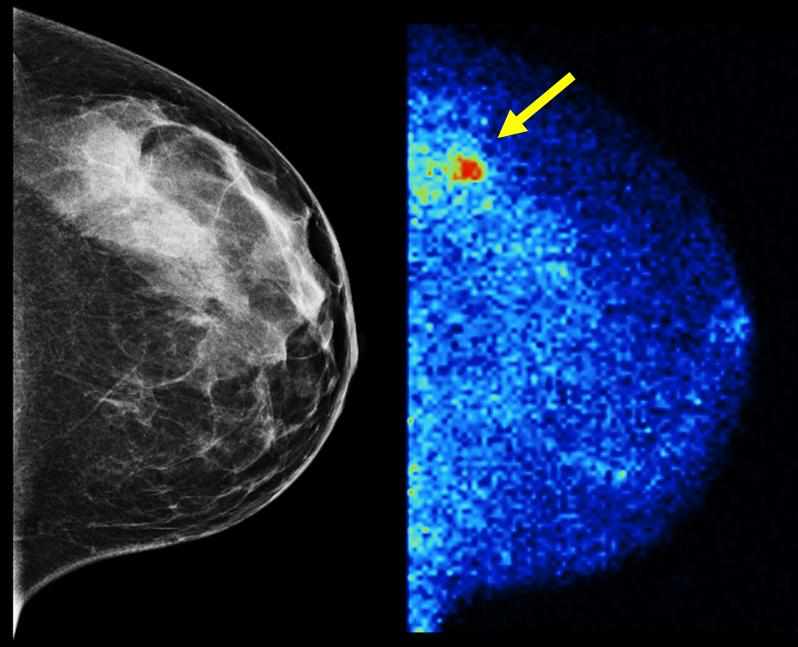-
Women’s Wellness: Screening tool for dense breasts
 A breast cancer screening tool developed at Mayo Clinic may benefit women with dense breasts. It's called molecular breast imaging (MBI), and research shows the technology detects more breast cancers in this group of women than mammography. Up to half of women have dense breast tissue.
A breast cancer screening tool developed at Mayo Clinic may benefit women with dense breasts. It's called molecular breast imaging (MBI), and research shows the technology detects more breast cancers in this group of women than mammography. Up to half of women have dense breast tissue.
MBI is a test that uses a radioactive tracer and special camera to find breast cancer. Rather than simply taking a picture of a breast, molecular breast imaging is a type of functional imaging. This means the pictures it creates show differences in the activity of the tissue. Tissue that contains cells that are rapidly growing and dividing, such as cancer cells, appears brighter than less active tissue.

During MBI, a small amount of radioactive tracer is injected into a vein in your arm. The tracer attaches to breast cancer cells that can then be detected using a camera that detects the gamma radiation released by the tracer (gamma camera). In this Mayo Clinic Minute, reporter Vivien Williams talks to Dr. Deborah Rhodes, a lead researcher in pioneering this tool for tumor detection.
In this Mayo Clinic Minute, reporter Vivien Williams talks to Dr. Deborah Rhodes, a lead researcher in pioneering this tool for tumor detection.
Molecular breast imaging may be used to:
- Screen for breast cancer in women with dense breast tissue. Molecular breast imaging, when combined with a breast X-ray (mammogram), detects more breast cancers in women with dense breast tissue than a mammogram alone.Typically, if you and your doctor decide you will have molecular breast imaging, it is done every other year along with an annual mammogram.Breast tissue is composed of milk glands, milk ducts and supportive tissue (dense breast tissue), and fatty tissue. Women with dense breasts have more dense breast tissue than fatty tissue. Both dense breast tissue and cancers appear white on a mammogram, which may make breast cancer more difficult to detect in a woman with dense breasts. Studies show combining molecular breast imaging and a mammogram results in finding 3 times more breast cancers than a mammogram alone. Molecular breast imaging has U.S. Food and Drug Administration clearance, which is an acceptance for lower-risk medical devices, and there is evidence of its benefits in detecting cancers in women with dense breasts.
- Investigate breast abnormalities. Molecular breast imaging may help doctors evaluate a breast lump or an unusual area detected on a mammogram. Your doctor may recommend molecular breast imaging if other imaging tests have been inconclusive. Molecular breast imaging may be used in women for whom an MRI is recommended, but can't be performed, such as those with allergies to the contrast material.
Related Mayo Clinic News Network posts:
Cost-effective addition to mammography in detecting cancer in dense breast tissue
Mayo Clinic Q & A: In addition to mammogram, MBI useful for women with dense breasts
Breast Exam Nearly Quadruples Detection of Invasive Breast Cancers in Women with Dense Breast Tissue







